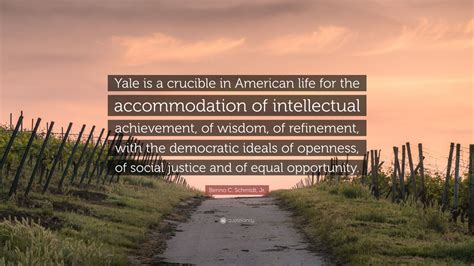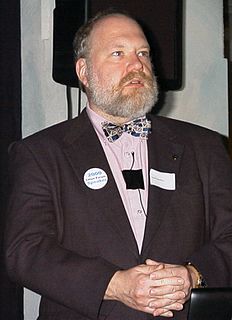A Quote by Benno C. Schmidt, Jr.
To take the measure of oneself by reference to one's colleagues leads to envy or complacency rather than constructive self-examination.
Related Quotes
I am firmly convinced, as I have already said, that to effect any great social improvement, it is sympathy rather than self-interest, the sense of duty rather than the desire for self-advancement, that must be appealed to. Envy is akin to admiration, and it is the admiration that the rich and powerful excite which secures the perpetuation of aristocracies.
Once we have a firm practice of compassion our state of mind becomes stronger which leads to inner peace, giving rise to self-confidence, which reduces fear. This makes for constructive members of the community. Self-centredness on the other hand leads to distance, suspicion, mistrust and loneliness, with unhappiness as the result.
I realized that we're now at a point of self-reference with the Internet culture that there's almost no there left, you know? It's important to make new things. It's important to make culture, rather than simply reference it. I love a good cultural reference, and it's one of the great joys in my life, but it has to all be in balance with the core job, which is to make something new. And that sort of brings me around to why I started talking about my fondness for marijuana.
Many great persons have been of opinion that love is no other thing than complacency itself, in which they have had much appearance of reason. For not only does the movement of love take its origin from the complacency which the heart feels at the first approach of good, and find its end in a second complacency which returns to the heart by union with the thing beloved--but further, it depends for its preservation on this complacency, and can only subsist through it as through its mother and nurse; so that as soon as the complacency ceases, love ceases.
You know that fiction, prose rather, is possibly the roughest trade of all in writing. You do not have the reference, the old important reference. You have the sheet of blank paper, the pencil, and the obligation to invent truer than things can be true. You have to take what is not palpable and make it completely palpable and also have it seem normal and so that it can become a part of experience of the person who reads it.



































